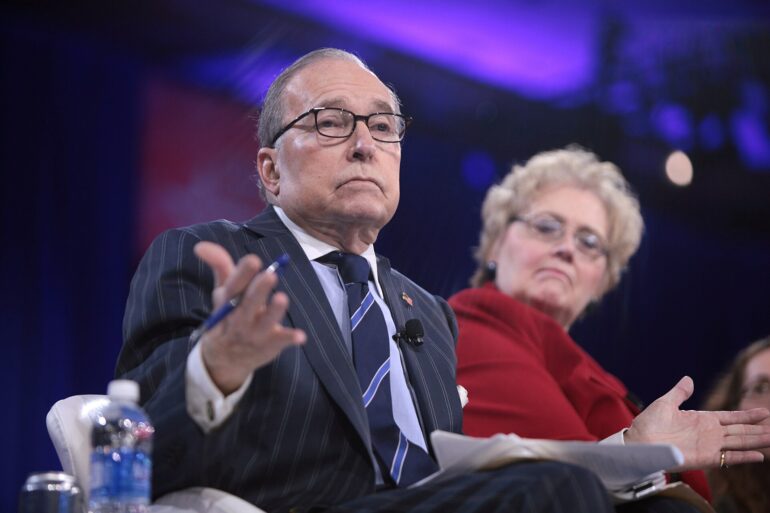Fox Business Network host Larry Kudlow reportedly confronted Treasury Secretary Scott Bessent regarding President Donald Trump’s proposed “reciprocal tariffs.”
The discussion came in light of a troubling stock market response following Trump’s announcement of the tariff program, which included a chart that detailed perceived charges from other countries and the proposed discounted tariffs for the U.S.
Kudlow raised questions about the methodology behind this tariff calculation, particularly criticizing the inclusion of trade deficits.
He pointed out a significant discrepancy: while the International Trade Administration lists Japan’s average tariff as 4.3%, Trump’s chart shows an alarming 46%.
Larry Kudlow schools Treasury Secretary Scott Bessent about why trade deficits aren’t actually bad pic.twitter.com/RLs65hkH2g
— Aaron Rupar (@atrupar) April 7, 2025
Kudlow argued that while Japan may have higher imports than the U.S., the number presented was misleading and could confuse market participants.
In response, Bessent acknowledged the complexity of the issue, mentioning that Trump’s decision to halve the numbers stemmed from recognizing the real challenges posed by non-tariff trade barriers.
He noted that while some countries, like China, have low tariffs (around 5%), the barriers to free market access, such as industry regulations and testing, still exist.
Kudlow also expressed skepticism about the trade deficit being a valid metric for assessing reciprocal tariffs. He suggested focusing on a select number of countries instead of applying the calculations to all trade partners.
Bessent countered that the trade deficit results from various factors, including terms of trade and the budget deficit, while maintaining that productive negotiations were possible with countries like Japan.
The discussion encapsulated the ongoing debate regarding tariff policies and their implications for the U.S. economy, highlighting differing opinions on how trade relationships should be evaluated.
[READ MORE: GOP Advances Trump’s Proposed Tax Cuts Through Congress]



